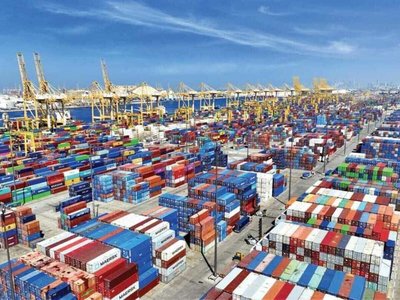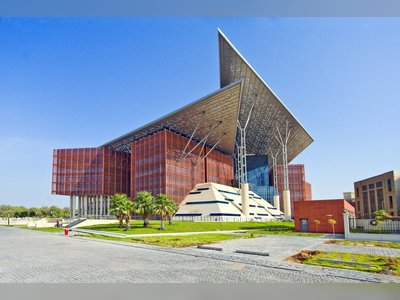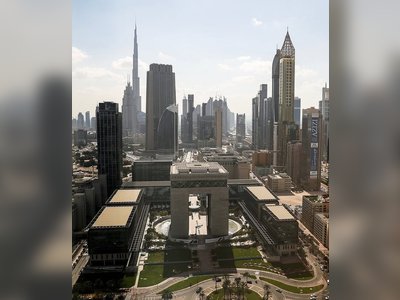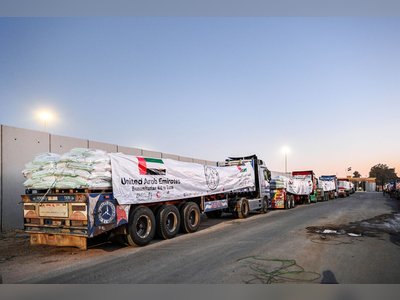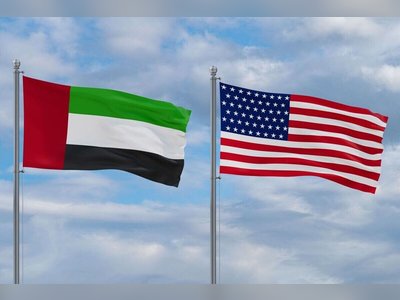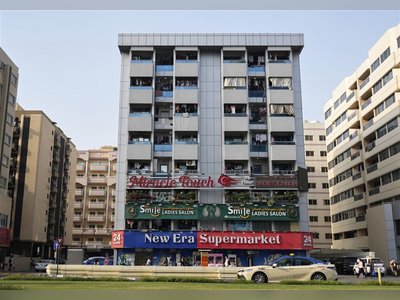GCC Emergency Management Centre Activated Amid Escalating Iran-Israel Conflict
The GCC aims to proactively address potential repercussions from the ongoing military confrontations between Israel and Iran.
The Gulf Cooperation Council (GCC) has officially activated its Emergency Management Centre in response to the escalating military conflict between Iran and Israel.
Secretary General Jasem Mohamed Albudaiwi emphasized the necessity of this measure as part of a strategy to prepare for potential outcomes, including environmental impacts, disruptions to vital infrastructure, economic ramifications, and threats to the safety of crucial waterways.
He highlighted that while current technical indicators remain stable and within safe limits, the GCC is maintaining a state of heightened alert to ensure vigilance and readiness.
Albudaiwi noted that the Emergency Management Centre would facilitate the oversight of preventive measures at both environmental and radiological levels, ensuring that technical indicators are monitored in close coordination with the authorities of member states through early warning systems.
Furthermore, he mentioned that technical reports and relevant data are being generated and disseminated, with the first media statement already issued.
All member countries of the GCC jointly condemned Israeli military operations, citing a breakdown in diplomatic dialogue following strikes by Israeli forces against Iran and subsequent retaliatory actions from Iran.
The GCC was established with principles of solidarity and proactive conflict prevention in mind, according to Albudaiwi, who reiterated calls for restraint and the avoidance of military escalation that could lead to a wider conflict.
Amidst ongoing confrontations, Iran has intensified its military response, launching fresh missile attacks on Israel.
Reports indicate that at least 224 individuals have been killed in Iran and 10 in Israel, with many residents of Tehran evacuating the city as conflict intensifies.
Iran's Islamic Revolutionary Guard Corps (IRGC) reported deploying over 545 attack drones to target multiple objectives in the region.
An Israeli airstrike in Tehran allegedly resulted in the deaths of three rescuers from the Iranian Red Crescent, who were reportedly providing assistance in the aftermath of the strikes.
In a separate development, Iran issued evacuation warnings directed at Israeli news channels following an Israeli attack on its state broadcaster's building.
The Bazan Group has confirmed the complete shutdown of its Haifa Bay oil refinery due to damage from Iranian strikes.
As tensions escalate, the implications for regional security remain a topic of discussion among international diplomats, with telephone conversations occurring between various foreign ministers, including Sheikh Abdullah bin Zayed Al Nahyan of the UAE.
The Iranian government has publicly condemned Israeli attacks on Iranian infrastructure, including media facilities, calling these actions 'war crimes' and urging international bodies to intervene.
Concurrently, Israeli officials have expressed intentions to expand their military operations throughout Iran, targeting key military infrastructure.
Disruptions to air travel have also been reported as both Dubai International and Al Maktoum International airports deal with significant delays due to airspace closures linked to heightened military operations.
Amid escalating tensions, the United States has issued a 'Do Not Travel' advisory for Israel, reflecting growing concerns over the safety of American citizens amid the conflict.
As the situation remains fluid, multiple countries are enacting precautionary measures for their nationals while continuing regional dialogues aimed at de-escalation.
Secretary General Jasem Mohamed Albudaiwi emphasized the necessity of this measure as part of a strategy to prepare for potential outcomes, including environmental impacts, disruptions to vital infrastructure, economic ramifications, and threats to the safety of crucial waterways.
He highlighted that while current technical indicators remain stable and within safe limits, the GCC is maintaining a state of heightened alert to ensure vigilance and readiness.
Albudaiwi noted that the Emergency Management Centre would facilitate the oversight of preventive measures at both environmental and radiological levels, ensuring that technical indicators are monitored in close coordination with the authorities of member states through early warning systems.
Furthermore, he mentioned that technical reports and relevant data are being generated and disseminated, with the first media statement already issued.
All member countries of the GCC jointly condemned Israeli military operations, citing a breakdown in diplomatic dialogue following strikes by Israeli forces against Iran and subsequent retaliatory actions from Iran.
The GCC was established with principles of solidarity and proactive conflict prevention in mind, according to Albudaiwi, who reiterated calls for restraint and the avoidance of military escalation that could lead to a wider conflict.
Amidst ongoing confrontations, Iran has intensified its military response, launching fresh missile attacks on Israel.
Reports indicate that at least 224 individuals have been killed in Iran and 10 in Israel, with many residents of Tehran evacuating the city as conflict intensifies.
Iran's Islamic Revolutionary Guard Corps (IRGC) reported deploying over 545 attack drones to target multiple objectives in the region.
An Israeli airstrike in Tehran allegedly resulted in the deaths of three rescuers from the Iranian Red Crescent, who were reportedly providing assistance in the aftermath of the strikes.
In a separate development, Iran issued evacuation warnings directed at Israeli news channels following an Israeli attack on its state broadcaster's building.
The Bazan Group has confirmed the complete shutdown of its Haifa Bay oil refinery due to damage from Iranian strikes.
As tensions escalate, the implications for regional security remain a topic of discussion among international diplomats, with telephone conversations occurring between various foreign ministers, including Sheikh Abdullah bin Zayed Al Nahyan of the UAE.
The Iranian government has publicly condemned Israeli attacks on Iranian infrastructure, including media facilities, calling these actions 'war crimes' and urging international bodies to intervene.
Concurrently, Israeli officials have expressed intentions to expand their military operations throughout Iran, targeting key military infrastructure.
Disruptions to air travel have also been reported as both Dubai International and Al Maktoum International airports deal with significant delays due to airspace closures linked to heightened military operations.
Amid escalating tensions, the United States has issued a 'Do Not Travel' advisory for Israel, reflecting growing concerns over the safety of American citizens amid the conflict.
As the situation remains fluid, multiple countries are enacting precautionary measures for their nationals while continuing regional dialogues aimed at de-escalation.
Translation:
Translated by AI
